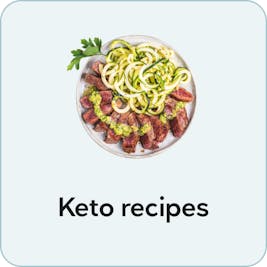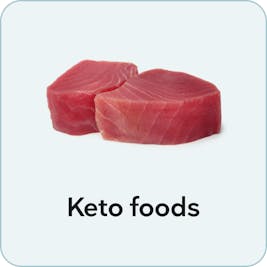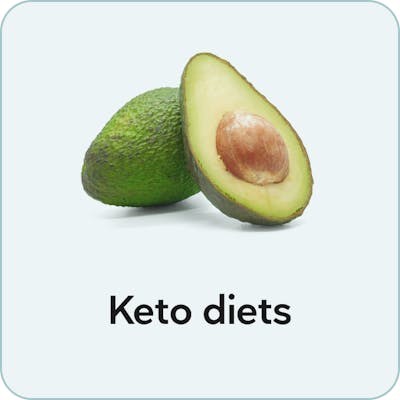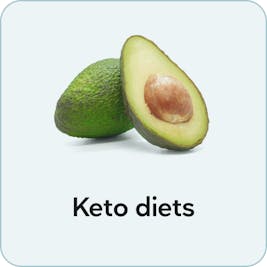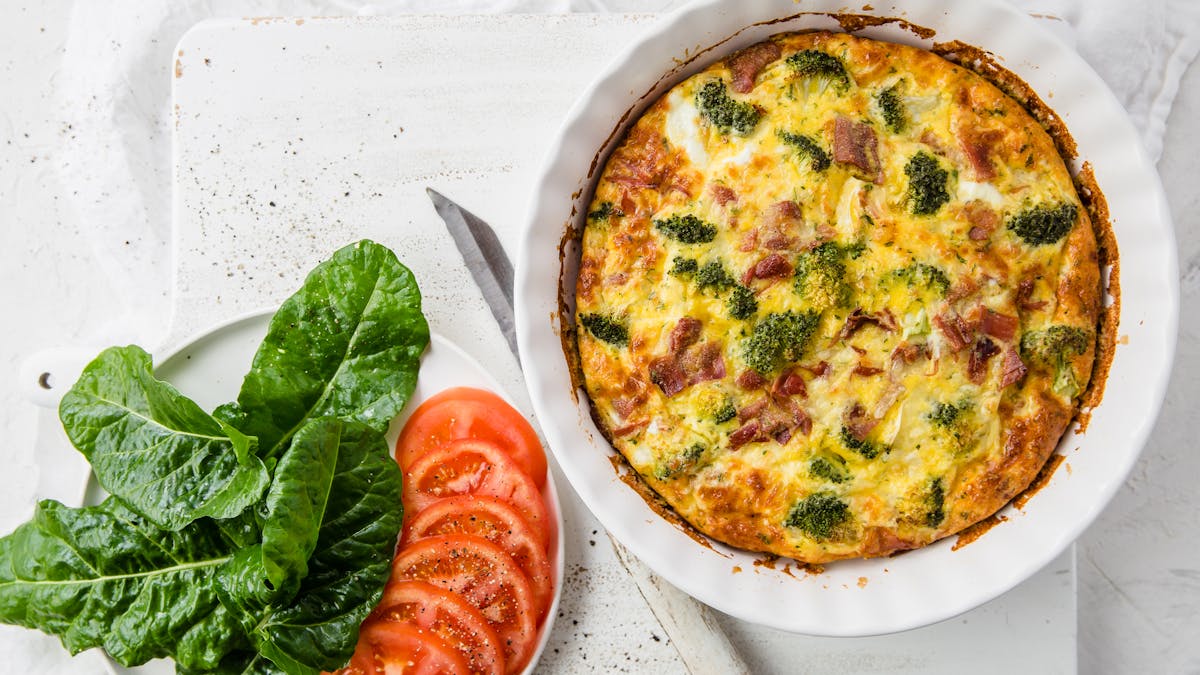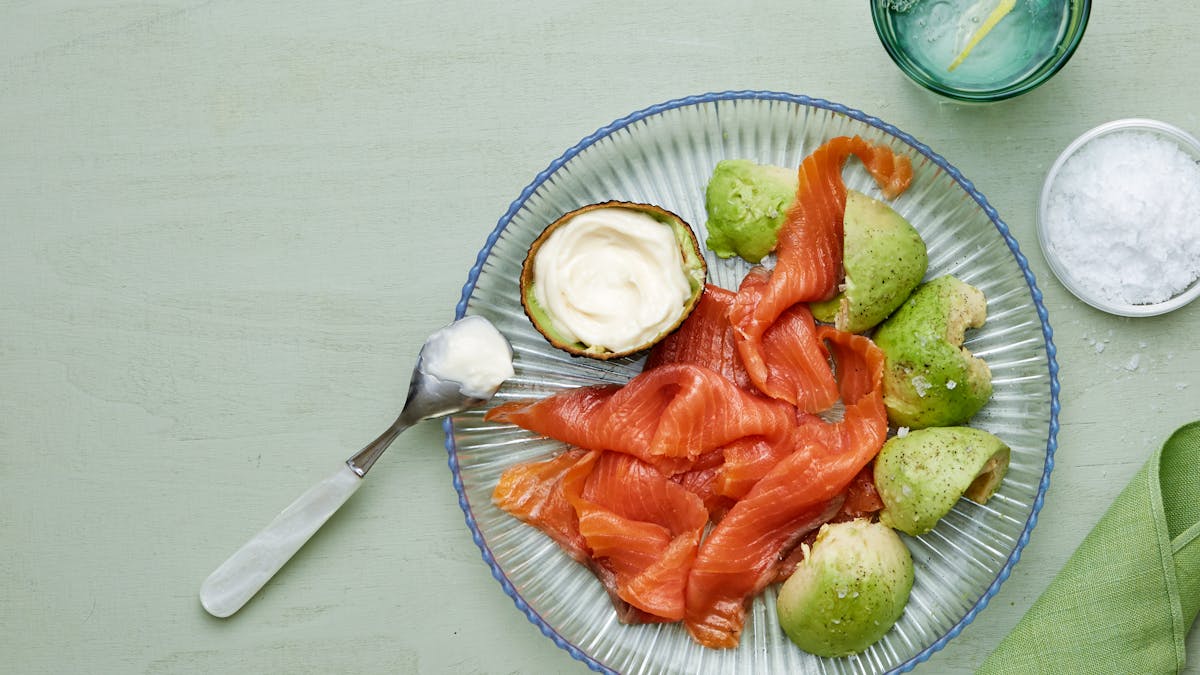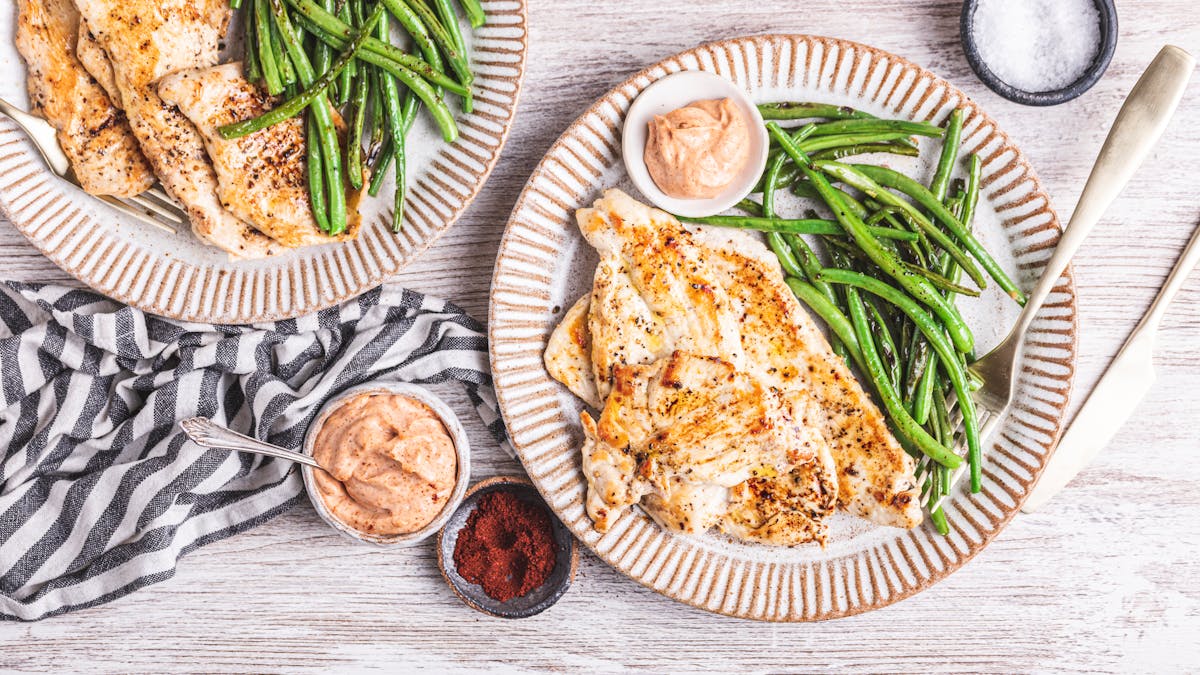5-day menopause meal plan




Are you struggling to lose weight during menopause or perimenopause due to hunger, cravings, or lack of energy? Although weight loss can be more difficult at this stage of life, eating a high protein keto or low carb diet may be helpful. Learn more in our complete guide to weight loss during menopause.
We’ve created a free five-day menopause meal plan that can help you feel full and satisfied, promote weight loss, and boost your energy levels — all while you enjoy delicious, nutritious food.Ready to get started?




Key takeaways
How to startWe plan your meals, provide recipes, and make the shopping list. You just shop, cook, and enjoy great results!
Here’s how to get started 5-day meal plan for menopause
Enjoy nine delicious low carb and keto recipes for five days.
Have a look at the menu Shopping list
With our handy shopping list feature, you can select your desired number of servings or swap meals.
Try it out
Get started
If you are new to low carb or keto, make sure to read the advice below before starting a new diet plan.
Is this meal plan right for you?
A meal plan is ideal for people who want to simplify their lives while getting all the benefits of a low carb or keto diet. A keto or low carb diet high in protein is especially useful to help relieve menopause symptoms, lose excess body fat without hunger, and improve type 2 diabetes.Menopause diet plan basics
On this menopause diet plan, your meals contain less than 20 grams of net carbs (total carbs minus fiber) per day. They also provide enough protein to meet your needs and help you feel satisfied.
Following a meal plan can help simplify your journey and set you up to succeed because all the planning is done for you.
Tips for keto success
-
- Breakfast: Choose one keto breakfast to eat every day, like scrambled eggs.3Not hungry? Skip breakfast and sip a coffee instead.4 This saves time and money.
- Prep your meals: Cook at least two servings for dinner, eat one, and refrigerate the other for tomorrow’s lunch. Freeze other portions for later. Full meal prep guide.
- Try no-cook plates: Sliced deli meats, cheeses, and veggies make an easy lunch. Here are many more.
Is keto safe?
Following a keto diet appears to be safe for most people.5
However, before starting a keto diet plan, make sure to check with your doctor if you take medication for diabetes or high blood pressure. If you’re breastfeeding, you should not follow a keto diet.
Start fresh
Use our kitchen clean-out list to help you make sure your kitchen is keto-friendly before starting your keto diet plan. This can dramatically increase your chances of success.
Avoid keto flu
Drink lots of fluids and get enough salt, especially during the first week of the meal plan, to minimize symptoms of the initial “keto flu.”6 For example, a cup of bouillon daily and salting your food ‘to taste’ really helps.7 Full guide
Disclaimer: While the ketogenic diet has many proven health benefits (e.g. weight loss, reversal of type 2 diabetes) it’s still controversial. Most importantly, there may be a need to adapt pre-existing medications (see above). Discuss any changes in medication and relevant lifestyle changes with your doctor. Full disclaimer This diet plan is for adults with health issues, including obesity, that could benefit from a keto diet.
5-day meal plan for menopause
Here are five days of easy, tasty recipes for breakfast, lunch, and dinner — and you won’t even need to count carbs! Each day features high protein, low carb, and keto dishes that will automatically keep you below 20 grams of net carbs per day.
Look forward to some of our top-ranking recipes to help you manage your menopause symptoms more effectively. Note: If you don’t like certain recipes or don’t have the ingredients on hand, you can always replace them with recipes that fit your preferences.
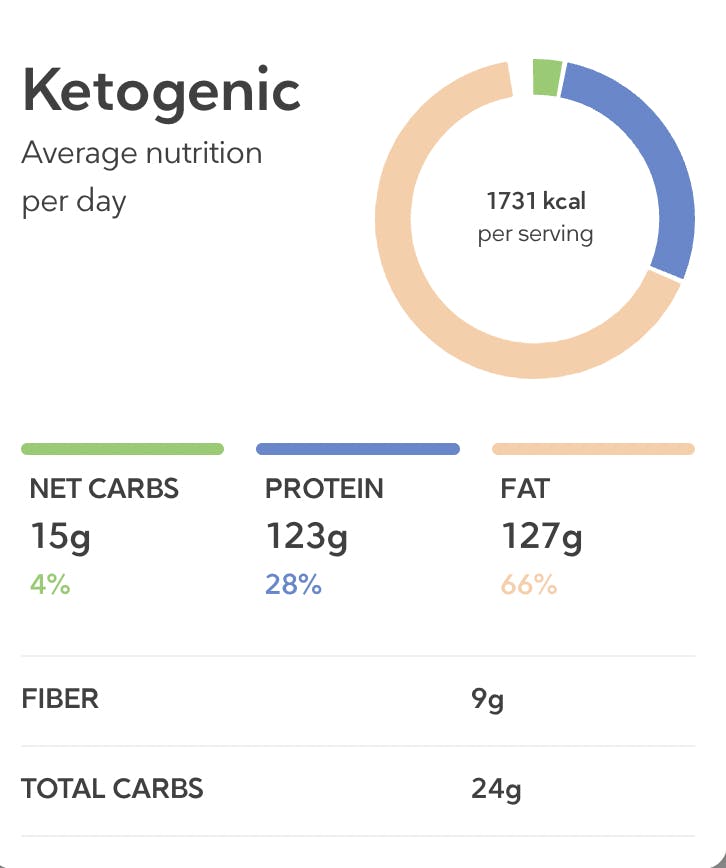



Day 1
Day 2
Day 3
Day 4
Day 5
Shopping lists and more
With shopping lists, your trip to the grocery store doesn’t have to be time-consuming or frustrating. Get all the healthy low carb foods you need for the next five days — and spend less time, and money, at the supermarket every month.
Access your shopping list on any device. Using a digital shopping tool can be even more beneficial than old-school pen and paper. You can access your shopping list straight from your smartphone, print it out, or even share it with family and friends when you don’t have the time for grocery shopping yourself.
How to create your own keto meal plan for menopause
Can you design your own keto meal plan that suits your unique preferences, lifestyle and needs? Absolutely! Just keep the net carbs under 20 grams per day.
Once you’ve created your plan, you won’t need to spend time figuring out what to eat every day. Plus, you may be more likely to achieve your weight loss and health goals by planning your keto meals in advance.
Find out more about which foods to include, and which ones to avoid, when you create your own meal plan.
FAQs about diet and menopause
I think a keto diet would help me manage my menopause symptoms. How do I get started? If you are new to a ketogenic diet, read our beginner’s guide and get all your questions answered. Starting a keto diet as a beginner can be challenging on your own. We suggest you start with any of our free 14-day meal plans or choose from among our free keto recipes. For maximum simplicity, sign up for our 2-week Get Started Challenge and get everything prepared for you.What else can I do to battle my menopause symptoms? There are some simple lifestyle changes that you can make to help you through menopause. See our top 8 tips here.
How much protein should I aim to eat every day? Getting enough protein is key for weight loss, but how much is enough? Our general advice is to eat between 1.2 to 2 grams of protein per kilogram of reference body weight per day. So, a woman whose reference body weight is 70 kg (154 lbs) should aim to eat 84 to 140 grams of protein per day.
I have had trouble sleeping since menopause started. Do you have any advice to help me get a good night’s sleep? Tips for better sleep include:
- Sleep in a cool, dark room.
- Wear ear plugs and an eye shade.
- Limit screen time and blue light before bed (or try the glasses that block blue light).
- Go to bed and get up at the same time each day.
- Stop drinking coffee by noon and limit caffeine consumption in all forms.
- Avoid alcohol before bed.
- Get exposure to natural daylight each day.
Where can I find more information about coping with menopause? Here is one of our articles on weight gain and menopause. All of our guides are written and reviewed by medical doctors and experts, based on scientific evidence, and trusted by practicing physicians.
Do you worry about eating saturated fats or cholesterol? There’s no good reason to do so. While still a bit controversial, repeated modern systematic reviews find no benefit from avoiding saturated fats, or replacing them with unsaturated fats:
- Open Heart 2016: Evidence from randomised controlled trials does not support current dietary fat guidelines: a systematic review and meta-analysis [strong evidence]
- Nutrition Journal 2017: The effect of replacing saturated fat with mostly n-6 polyunsaturated fat on coronary heart disease: a meta-analysis of randomised controlled trials [strong evidence]
Here’s a study investigating if eating eggs for breakfast every day has any negative effects on cholesterol levels. They found none, but the egg-eating group reported greater satiety:
- American Journal of Clinical Nutrition 2015: The effect of a high-egg diet on cardiovascular risk factors in people with type 2 diabetes: the Diabetes and Egg (DIABEGG) study-a 3-mo randomized controlled trial [moderate evidence]
It’s often claimed that eating breakfast is good for weight control. That appears to be false:
- British Medical Journal 2019: Effect of breakfast on weight and energy intake: systematic review and meta-analysis of randomised controlled trials [strong evidence]
- The American Journal of Clinical Nutrition 2009: The effectiveness of breakfast recommendations on weight loss: a randomized controlled trial [moderate evidence]
Furthermore, reduced hunger is common on a keto diet, so many people find it easy to skip one meal:
- Obesity Reviews 2014: Do ketogenic diets really suppress appetite? A systematic review and meta-analysis [strong evidence]
Read more in our guide to time-restricted eating. ↩
Do you worry about eating saturated fats or cholesterol? There’s no good reason to do so. While still a bit controversial, repeated modern systematic reviews find no benefit from avoiding saturated fats, or replacing them with unsaturated fats:
- Open Heart 2016: Evidence from randomised controlled trials does not support current dietary fat guidelines: a systematic review and meta-analysis [strong evidence]
- Nutrition Journal 2017: The effect of replacing saturated fat with mostly n-6 polyunsaturated fat on coronary heart disease: a meta-analysis of randomised controlled trials [strong evidence]
Here’s a study investigating if eating eggs for breakfast every day has any negative effects on cholesterol levels. They found none, but the egg-eating group reported greater satiety:
- American Journal of Clinical Nutrition 2015: The effect of a high-egg diet on cardiovascular risk factors in people with type 2 diabetes: the Diabetes and Egg (DIABEGG) study-a 3-mo randomized controlled trial [moderate evidence]
It’s often claimed that eating breakfast is good for weight control. That appears to be false:
- British Medical Journal 2019: Effect of breakfast on weight and energy intake: systematic review and meta-analysis of randomised controlled trials [strong evidence]
- The American Journal of Clinical Nutrition 2009: The effectiveness of breakfast recommendations on weight loss: a randomized controlled trial [moderate evidence]
Furthermore, reduced hunger is common on a keto diet, so many people find it easy to skip one meal:
- Obesity Reviews 2014: Do ketogenic diets really suppress appetite? A systematic review and meta-analysis [strong evidence]
Read more in our guide to time-restricted eating. ↩
The main fear about lower-carb and higher-fat diets has always been a concern about the potential increase in the risk of heart disease. However, interventional studies so far indicate that if anything the risk appears to decrease:
- British Journal of Nutrition 2016: Effects of low-carbohydrate diets v. low-fat diets on body weight and cardiovascular risk factors: a meta-analysis of randomised controlled trials. [strong evidence for improved risk factors]
- PLOS ONE 2015: Dietary intervention for overweight and obese adults: comparison of low-carbohydrate and low-fat diets. A meta-analysis. [strong evidence for improved risk factors]
- Obesity reviews 2012: Systematic review and meta‐analysis of clinical trials of the effects of low carbohydrate diets on cardiovascular risk factors [strong evidence for improved risk factors]
- Circulation 2010: Dietary intervention to reverse carotid atherosclerosis [moderate evidence for a reduction in atherosclerosis]
For more health controversies regarding a keto diet, have a look at this page:
The “keto flu” is a set of common early side effects like headache, feeling tired, nausea, lack of concentration, brain fog, etc. Learn more
Nutrition X 2019: Effects of differing levels of carbohydrate restriction on mood achievement of nutritional ketosis, and symptoms of carbohydrate withdrawal in healthy adults: A randomized clinical trial [randomized trial; moderate evidence]
↩This is mainly based on the consistent experience of experienced clinicians [weak evidence]. But there’s also some support from this study that found only minor increases in side effects, while advising participants to drink bouillon:
Nutrition & Metabolism 2008: The effect of a low-carbohydrate, ketogenic diet versus a low-glycemic index diet on glycemic control in type 2 diabetes mellitus [moderate evidence] ↩




